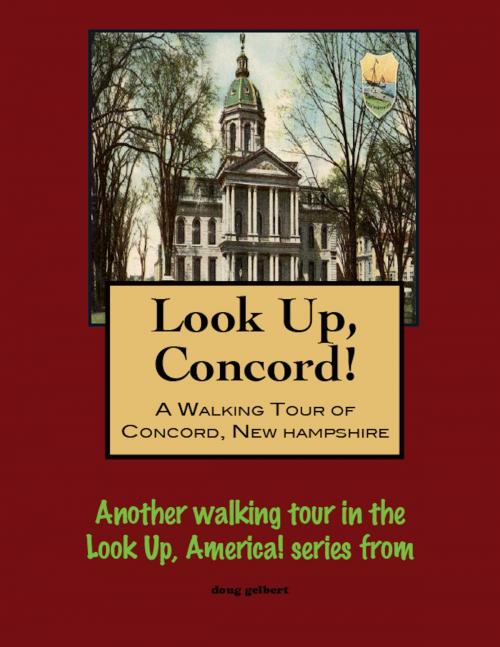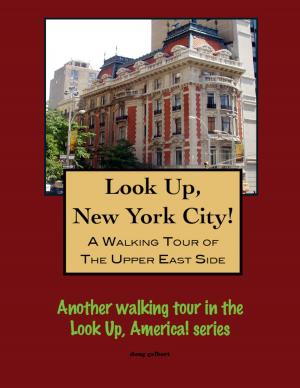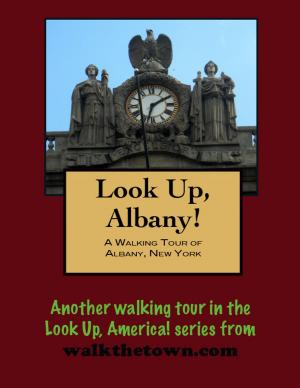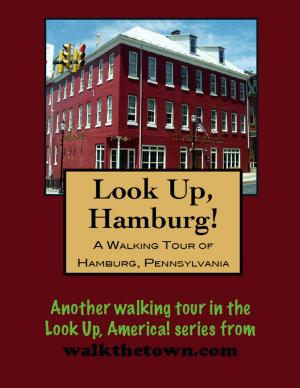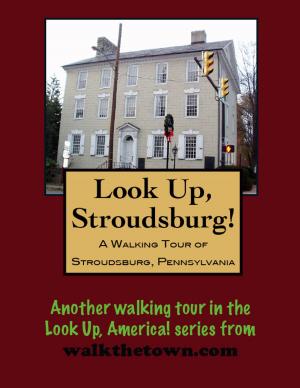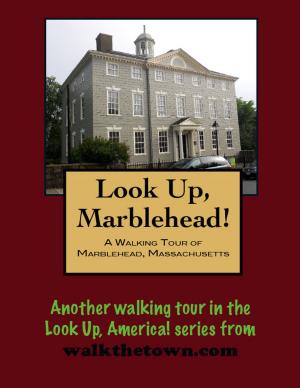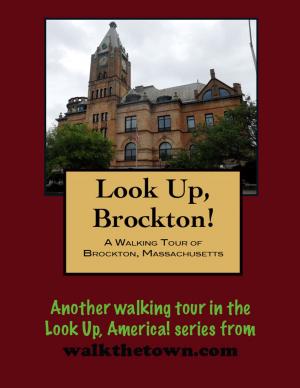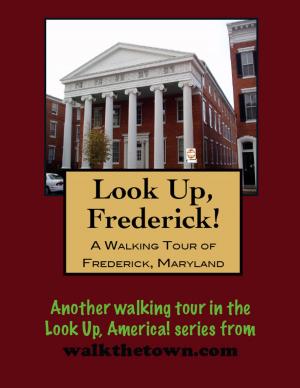Look Up, Concord! A Walking Tour of Concord, New Hampshire
Nonfiction, Travel, Lodging & Restaurant Guides, History, Americas| Author: | Doug Gelbert | ISBN: | 9781301947461 |
| Publisher: | Doug Gelbert | Publication: | March 5, 2013 |
| Imprint: | Smashwords Edition | Language: | English |
| Author: | Doug Gelbert |
| ISBN: | 9781301947461 |
| Publisher: | Doug Gelbert |
| Publication: | March 5, 2013 |
| Imprint: | Smashwords Edition |
| Language: | English |
There is no better way to see America than on foot. And there is no better way to appreciate what you are looking at than with a walking tour. Whether you are preparing for a road trip or just out to look at your own town in a new way, a downloadable walking tour from walkthetown.com is ready to explore when you are.
Each walking tour describes historical and architectural landmarks and provides pictures to help out when those pesky street addresses are missing. Every tour also includes a quick primer on identifying architectural styles seen on American streets.
For most of its colonial existence New Hampshire’s capitol was headquartered in Portsmouth, on the coast. In 1774 the rebellious Provincial Congress moved inland to Exeter, meeting in the Exeter Town House. In January 1776, New Hampshire became the first colony to set up an independent government and the first to establish a constitution, although Rhode Island was the first to declare independence from Britain. Eventually the makeshift capitol became permanent in Concord although it was not until 1808 that Concord was named the official seat of state government.
Concord, on the western banks of the serpentine meanderings of the Merrimack River, was settled in the 1720s and was incorporated in 1734 as Rumford. It was renamed Concord in 1765 by Governor Benning Wentworth, supposedly as a testament to the settlement of a contentious border dispute.
In 1803, the first turnpike in New Hampshire opened, linking the inland town of Concord with the seacoast’s Portsmouth, launching the town as the state’s transportation and trade center. In 1807 Concord was connected to Boston by way of canal and in a few decades it would flourish as a hub for the railroad industry. Furniture making and quarrying granite from Rattlesnake Hill north of town were also drove the local economy. And the manufacture of carriages and coaches brought the town widespread notoriety.
But for more than 200 years Concord has been a government town. Homegrown Franklin Pierce was sent to Washington as the country’s fourteenth President, giving New Hampshire the honor of being by far the smallest state to ever produce a United States President. Arkansas (Bill Clinton) and Iowa (Herbert Hoover) are the only other states outside the 20 most populous American states to send a favored son to the White House.
Our walking tour of Concord will begin in the heart of the Civic District at the very State House where Franklin Pierce served from 1829 until 1833, in America’s oldest state house in which the legislature still occupies its original chambers...
There is no better way to see America than on foot. And there is no better way to appreciate what you are looking at than with a walking tour. Whether you are preparing for a road trip or just out to look at your own town in a new way, a downloadable walking tour from walkthetown.com is ready to explore when you are.
Each walking tour describes historical and architectural landmarks and provides pictures to help out when those pesky street addresses are missing. Every tour also includes a quick primer on identifying architectural styles seen on American streets.
For most of its colonial existence New Hampshire’s capitol was headquartered in Portsmouth, on the coast. In 1774 the rebellious Provincial Congress moved inland to Exeter, meeting in the Exeter Town House. In January 1776, New Hampshire became the first colony to set up an independent government and the first to establish a constitution, although Rhode Island was the first to declare independence from Britain. Eventually the makeshift capitol became permanent in Concord although it was not until 1808 that Concord was named the official seat of state government.
Concord, on the western banks of the serpentine meanderings of the Merrimack River, was settled in the 1720s and was incorporated in 1734 as Rumford. It was renamed Concord in 1765 by Governor Benning Wentworth, supposedly as a testament to the settlement of a contentious border dispute.
In 1803, the first turnpike in New Hampshire opened, linking the inland town of Concord with the seacoast’s Portsmouth, launching the town as the state’s transportation and trade center. In 1807 Concord was connected to Boston by way of canal and in a few decades it would flourish as a hub for the railroad industry. Furniture making and quarrying granite from Rattlesnake Hill north of town were also drove the local economy. And the manufacture of carriages and coaches brought the town widespread notoriety.
But for more than 200 years Concord has been a government town. Homegrown Franklin Pierce was sent to Washington as the country’s fourteenth President, giving New Hampshire the honor of being by far the smallest state to ever produce a United States President. Arkansas (Bill Clinton) and Iowa (Herbert Hoover) are the only other states outside the 20 most populous American states to send a favored son to the White House.
Our walking tour of Concord will begin in the heart of the Civic District at the very State House where Franklin Pierce served from 1829 until 1833, in America’s oldest state house in which the legislature still occupies its original chambers...
